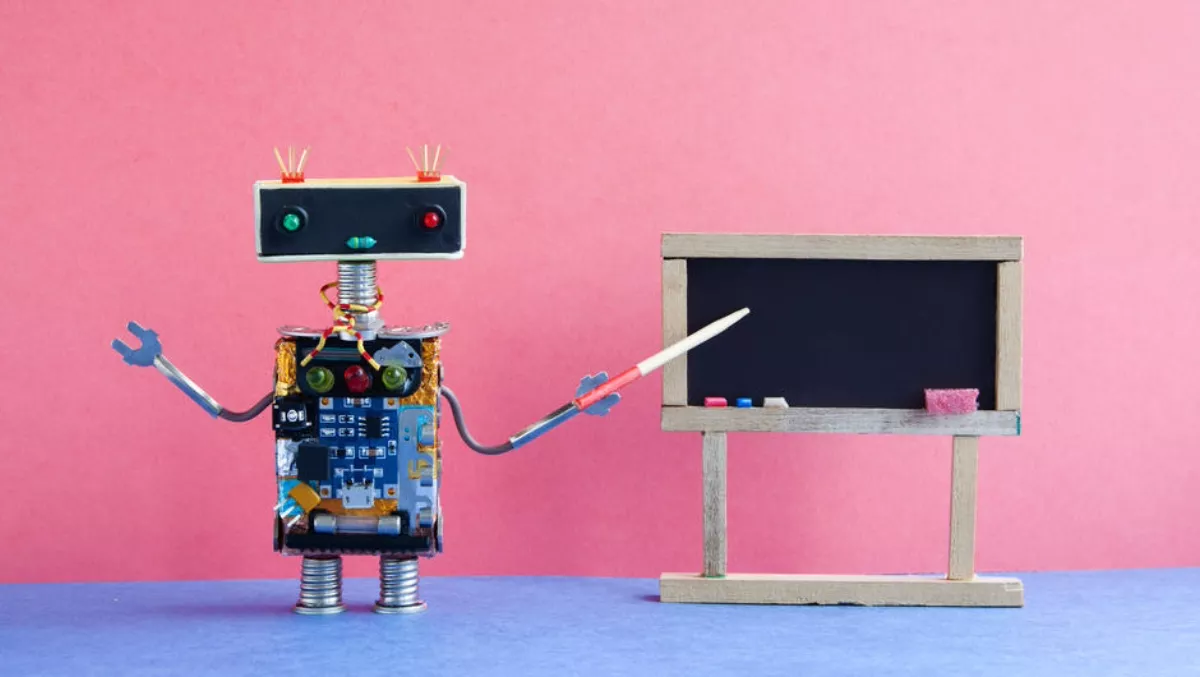Just as artificial intelligence (AI) tools are poised to reshape many aspects of business, the rapidly evolving technology will also play an increasing role in the education space.
Attention is currently focused on how AI can streamline many of the processes that existing with organisations. The software can assist with everything from spotting trends in large volumes of customer data to automating accounting and reporting tasks.
When it comes to education, AI can assist in a variety of ways. Just as in a business, the tools can be used to streamline administrative tasks, thus improving efficiency and reducing costs.
For example, AI could assist a university with the processing of student enrolment applications or the reporting of academic results.
In the finance department, the tools could remove the need for many existing manual processes and lead to more effective allocation of funding.
AI as a teacher
One of the most interesting applications of the technology in the tertiary education sector has appeared in the form of AI-powered software that can mark student exam papers.
A study undertaken by researchers at Stanford University used AI tools to mark 15,000 essays at the same time as they were being reviewed by human teachers.
The researchers found the grades recommended by the AI tools agreed with those made by the humans in 94.5% of cases.
Another interesting application of AI can be seen in a project undertaken at the US-based Georgia Institute of Technology. In 2014, one of the university's professors, Ashok Goel, created an AI tool that provided online responses to questions from students.
For five months, none of the students using the service realised they were actually interacting with a machine.
Called Jill Watson, the automated teaching assistant was able to answer basic queries from students and offer natural language responses. This freed up human teaching assistants to focus on more complex questions posed by students.
This application of AI shows how the technology could become much more ingrained in the education process in coming years. It could deliver introductory-level training and basic information leaving human lecturers free to focus on more complex and abstract ideas.
Providing individualised support
AI also has the potential to customise the way in which materials are presented to individual students.
Rather than using a ‘one-size-fits-all' approach to lectures, the learning experience could be tailored to better match the progress of students and the ways in which they learn most effectively.
For example, presentations could be changed in response to a student's exam results. Any areas in which they performed poorly could be highlighted with extra time spent on those topics.
Follow-up quizzes could be generated to ensure their level of understanding had improved before moving on to new topics.
When it comes to academic tutoring, AI tools could be used to recommend the most appropriate tutors for people with disabilities or different learning styles. By closely matching experience and skill levels with a student's academic level, better teaching outcomes can be achieved.
In some situations, AI tools could provide the tutoring service itself. The tools could assist students by posing questions and then offering customised feedback.
The tools will be able to learn over time, ensuring their responses become more valuable to the students learning them. Such tools could build a profile of each student and closely monitor their progress through the educational materials. Tutoring activities could be automatically altered at any time should a student be judged to be falling behind or capable of progressing at a faster rate.
In this way, educational institutions will be able to provide far greater levels of one-on-one guidance than would be possible using human tutors alone.
As AI continues to evolve and its capabilities improve, the ways in which it can be put to work within the education sector will continue to increase.
Rather than replacing human teachers, it will become a valuable tool that can enhance the level of service they can provide to their students.
